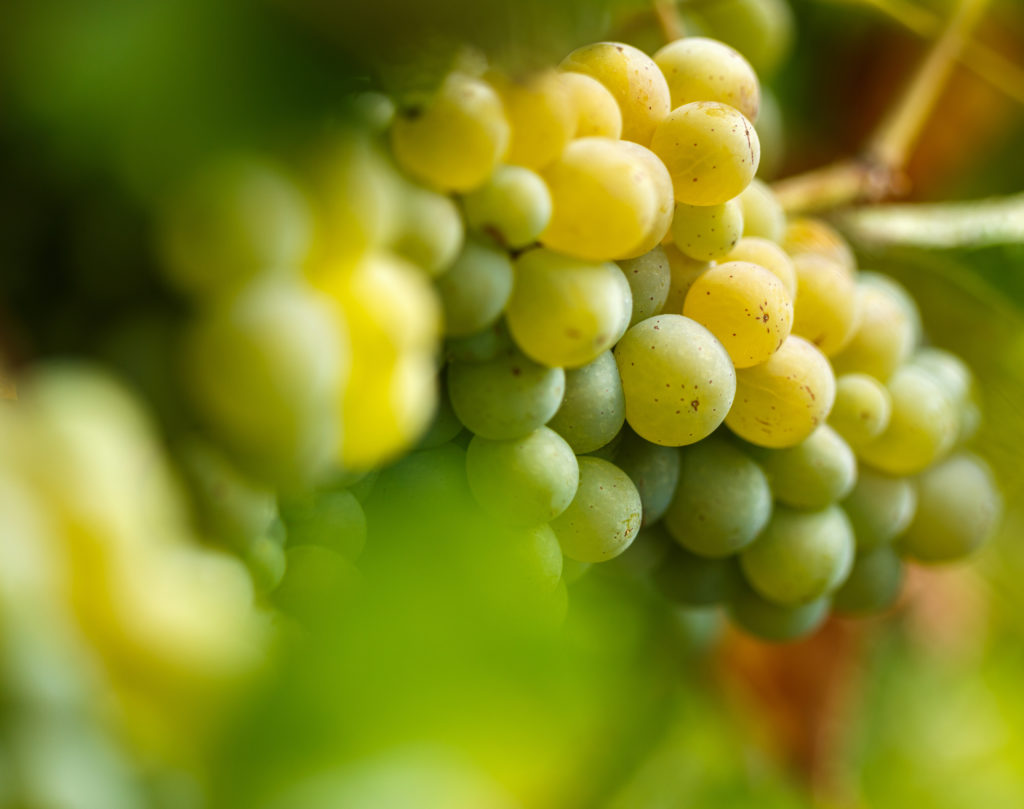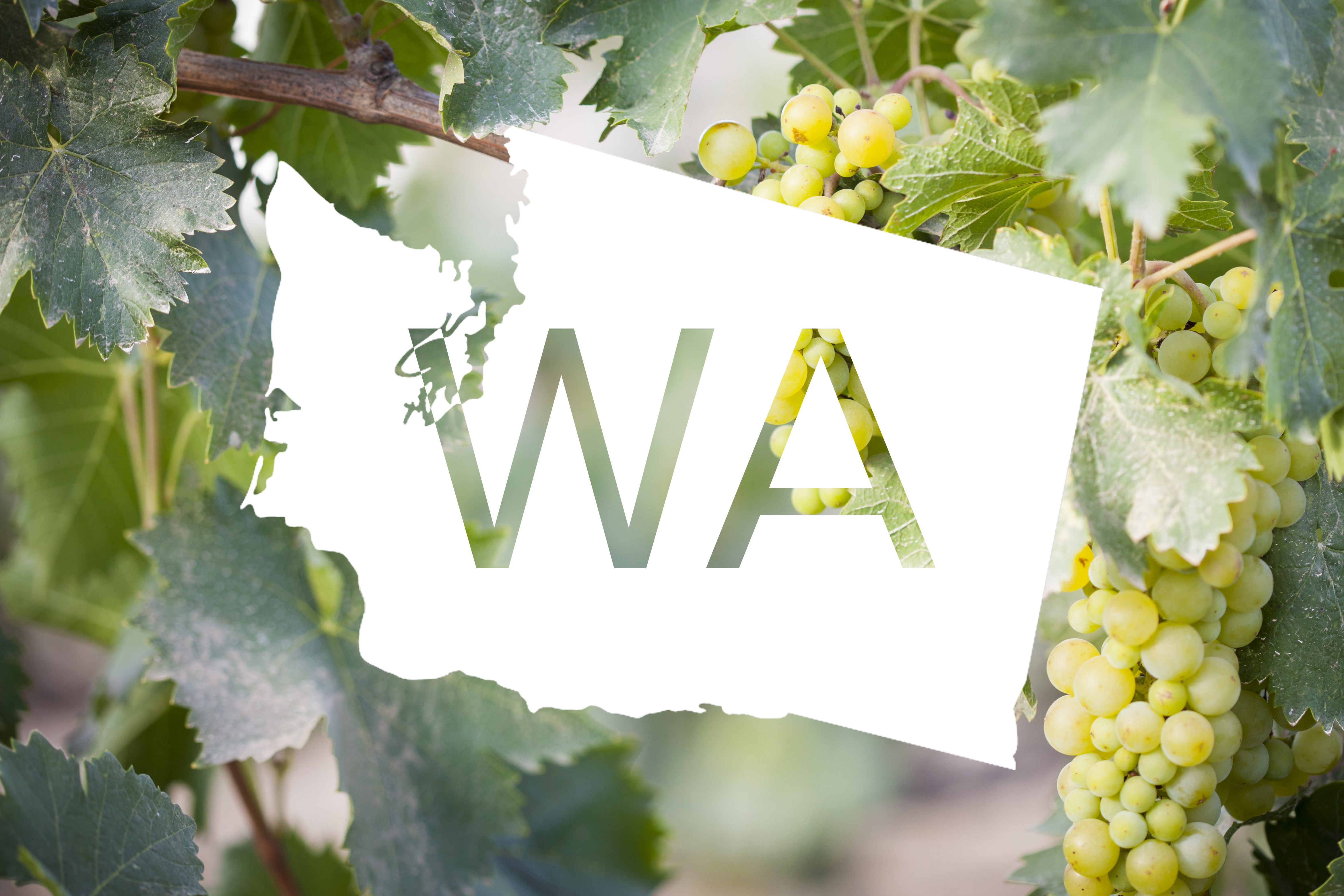To celebrate Washington Wine Month and National White Wine Day, we’d like to brush over Washington wine history and take a look at the more interesting portion of the 2nd largest wine producing state’s variety of white plantings.
Washington State is known for its plantings of lesser known and “new breed” grapes, and the vast majority of all grape growths are on the eastern half of the state just beyond the Cascade Range and situated southward from there. With an additional 2 hours of sunlight per summer day over California, Washington’s grapes have more energy available to them to produce incredible juice. On the winter half of the year, temperatures drop low enough to ensure the vines go fully dormant for the season. In the early days (post-prohibition) the state largely made sweet fortified wine from the Concord grape until Italian immigrants brought the Cinsault grape into Walla Walla. In the 70’s Riesling and Chardonnay were introduced. Over time the state settled into making the quality Cabernets and Syrahs we know them for today. In the brief time of Washington’s viticulture history (1825-Present) there has been a boom of plantings that are more diverse than anywhere else on the globe. To illustrate the point, here is a brief, non-complete list of some of the more off the beaten path white plantings, and from whence they came, that continues to grow within the state each year:
Aligote, from Burgundy
Aurore, a hybrid from France
Auxerrois, from Alsace
Trousseau Gris, from France
Csaba, from Hungary
Ehrenfelser, from Rheingau
Feher Szagos (White Concord grape), from Hungary
Madeleine Angevine, from Loire Valley
Madeleine Royale, from France
Melon de Bourgogne, from France
Muller-Thurgau, from Germany – a Riesling hybrid
Palomino, from Spain
Rkatsiteli, from Georgia
Friulano, from Italy
Scheurebe, from Germany
Siegerrebe, from Germany – a Gewürztraminer hybrid


